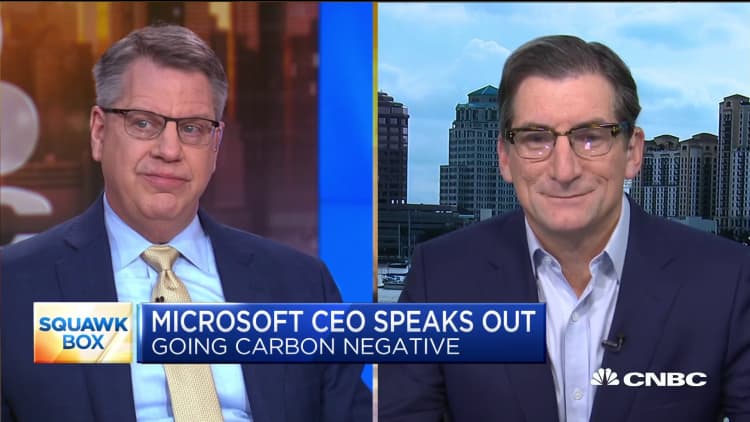Starbucks announced Tuesday that it will strive to become "resource positive," storing more carbon than it emits, eliminating waste and providing more clean freshwater than it uses.
The coffee chain is among the growing number of companies that are announcing sweeping sustainability goals as consumers grow increasingly concerned about climate change. BlackRock, the world's largest investment firm, announced a week ago it plans to overhaul its investing strategy to make sustainability the new standard. On Thursday, Microsoft said it is trying to remove more carbon from the atmosphere than it emits by 2030.
"By embracing a longer-term economic, equitable and planetary value proposition for our company, we will create greater value for all stakeholders," Starbucks CEO Kevin Johnson said in announcing the new goal.
In 2018, Starbucks emitted 16 million tons of greenhouse gases, withdrew 1 billion cubic meters of water and created 868 kilotons of waste. These numbers track the journey of its products starting with suppliers and coffee producers all the way to its cafes.
To help reach its long-term targets, Starbucks has set three preliminary goals for 2030: to cut carbon emissions by half in direct operations and its supply chain, to conserve or replenish half of the water taken for coffee production or operations and to reduce half of the waste sent to landfills by stores and manufacturing.
The company plans to formalize those goals by March 2021, when it celebrates its 50th anniversary.
As part of its far-reaching goal to become resource positive, Starbucks plans to offer more plant-based options on its menu. Dairy accounted for 21% of its global carbon footprint in 2018, and animal protein was the highest contributor to its carbon and water usage in the food category.
Realistic meatless meats from companies such as Beyond Meat and Impossible Foods, coupled with studies that have shown the negative environmental impacts of meat consumption, have led many consumers to reduce their meat intake and eat more plant-based foods instead.
The coffee chain also plans to shift to reusable packaging. Getting consumers to ditch single-use cups in favor of reusable ones has proved to be tricky for the company. Starbucks previously set a goal in 2008 to have a quarter of consumers use reusable cups by 2015, but the company fell short of that goal.
Along with McDonald's, Nestle and other multinational companies, Starbucks is a partner in the NextGen Consortium to fund recyclable and compostable cup designs.
Starbucks' announcement came on the day 17-year-old Swedish climate activist Greta Thunberg exhorted world leaders at Davos, Switzerland, to take action on climate change.
"I know you don't want to talk about this," Thunberg told them.



